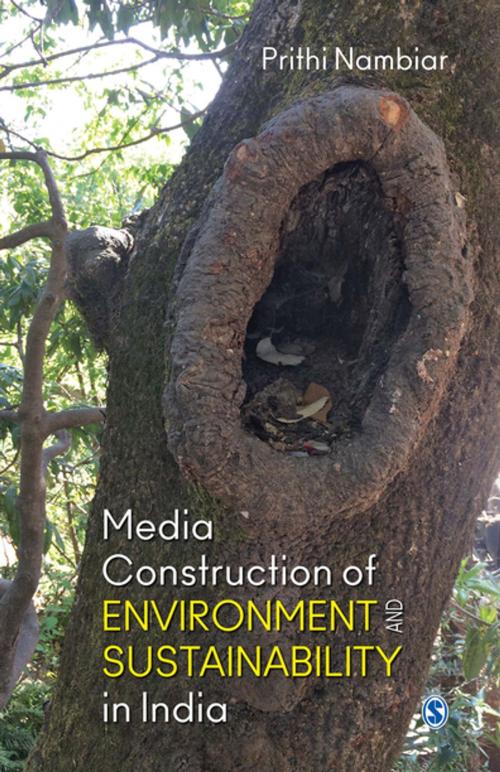Media Construction of Environment and Sustainability in India
Nonfiction, Reference & Language, Language Arts, Communication, Science & Nature, Nature, Environment, Environmental Conservation & Protection, Reference| Author: | Prithi Nambiar | ISBN: | 9789351504399 |
| Publisher: | SAGE Publications | Publication: | August 12, 2014 |
| Imprint: | Sage Publications Pvt. Ltd | Language: | English |
| Author: | Prithi Nambiar |
| ISBN: | 9789351504399 |
| Publisher: | SAGE Publications |
| Publication: | August 12, 2014 |
| Imprint: | Sage Publications Pvt. Ltd |
| Language: | English |
The book analyses the role of media and communication in negotiating the meaning of environment and sustainability in the developmental context of India. As part of the global development discourse, it has become necessary to refocus on the meanings attributed to environment, sustainability, and sustainable development at the local and national level. The impact of these globally generated imperatives on a democratic, fast-developing nation like India is determined by the extent to which meaning negotiation through discourse aids their acceptance within society.
Media Construction of Environment and Sustainability in India presents a theoretical framework against which the role of media and communication in enabling this meaning negotiation is explored and illustrated through textual analysis and examination of interview data. The uniquely theoretical and practical perspective on the discursive construction of these concepts will be of immense value for policy makers, development and media practitioners, scholars, and students of media and communication.
The book analyses the role of media and communication in negotiating the meaning of environment and sustainability in the developmental context of India. As part of the global development discourse, it has become necessary to refocus on the meanings attributed to environment, sustainability, and sustainable development at the local and national level. The impact of these globally generated imperatives on a democratic, fast-developing nation like India is determined by the extent to which meaning negotiation through discourse aids their acceptance within society.
Media Construction of Environment and Sustainability in India presents a theoretical framework against which the role of media and communication in enabling this meaning negotiation is explored and illustrated through textual analysis and examination of interview data. The uniquely theoretical and practical perspective on the discursive construction of these concepts will be of immense value for policy makers, development and media practitioners, scholars, and students of media and communication.















